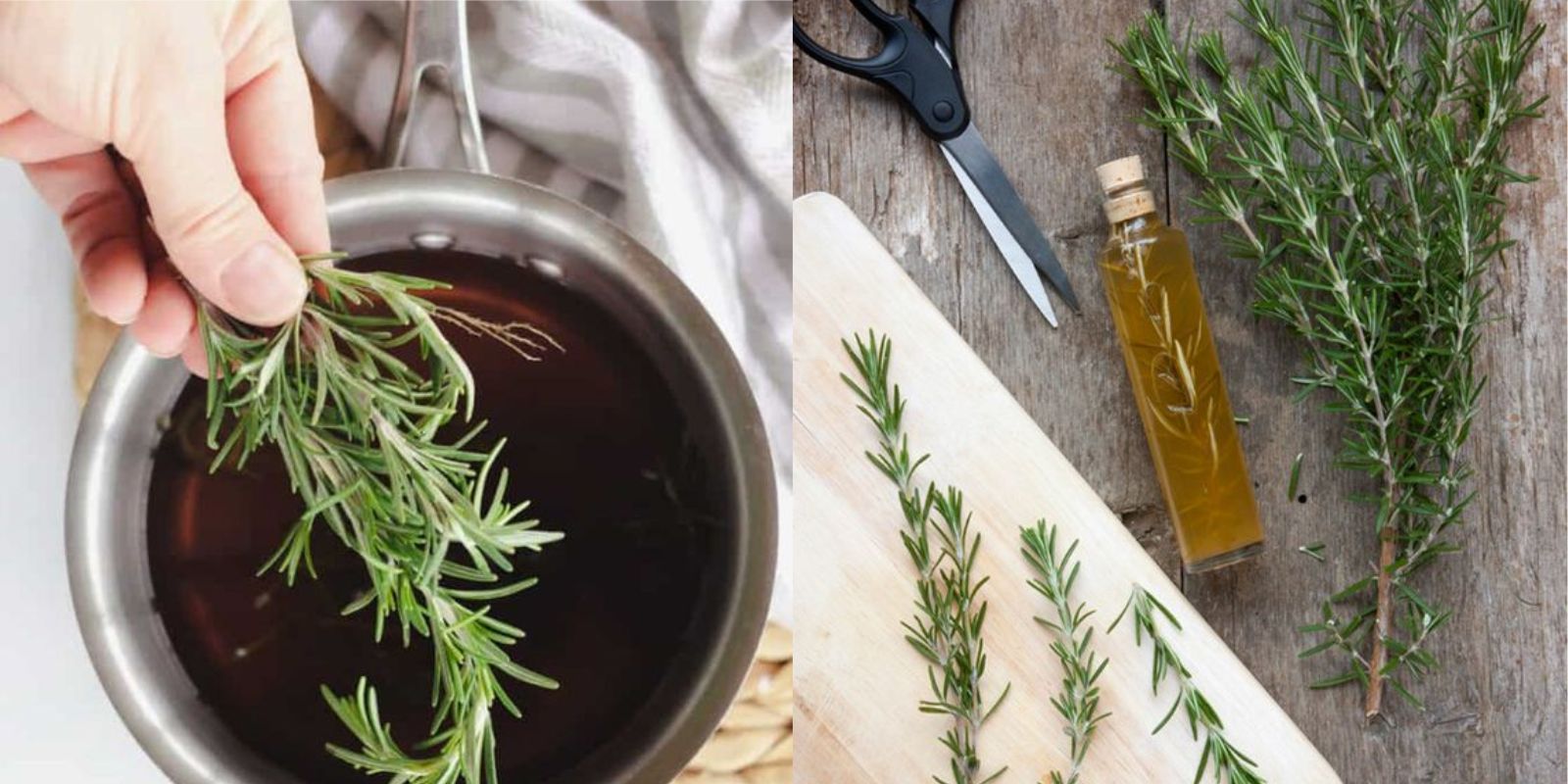Rosemary, a herb celebrated for its aromatic and culinary qualities, holds more than just flavor for your dishes. Boiling rosemary branches at home can reveal a range of surprising benefits that extend beyond the kitchen. This article explores the remarkable effects of boiling rosemary, including its impact on your home environment and potential health benefits.
Introduction
Rosemary (Rosmarinus officinalis) is a woody perennial herb native to the Mediterranean region. It has been used for centuries for its distinctive flavor in cooking, as well as its purported medicinal properties. When boiled, rosemary releases essential oils and compounds that can have transformative effects on your home environment and personal well-being. Whether you’re looking to freshen up your space or explore natural remedies, boiling rosemary can be a simple yet powerful addition to your routine.
Benefits of Boiling Rosemary
1. Aromatic Freshness:
One of the most immediate benefits of boiling rosemary is the release of its invigorating aroma. The essential oils in rosemary contribute to a fresh, pleasant scent that can enhance the atmosphere in your home.
- Natural Air Freshener: The aroma produced by boiling rosemary can act as a natural air freshener. Unlike synthetic air fresheners, rosemary provides a clean, herbal scent that can uplift and purify your indoor environment.
- Mood Enhancement: The fragrance of rosemary is known to have mood-boosting properties. The scent can create a calming atmosphere, helping to reduce stress and anxiety.
2. Health Benefits:
Rosemary has long been valued for its potential health benefits, many of which are unlocked when the herb is boiled.
- Respiratory Health: The steam released during boiling can help clear nasal passages and ease respiratory discomfort. Rosemary’s antimicrobial properties may also assist in reducing airborne bacteria.
- Improved Sleep: The calming effect of rosemary’s aroma can promote relaxation and improve sleep quality. The scent may help you unwind before bedtime, leading to a more restful night.
- Cognitive Benefits: Some studies suggest that the aroma of rosemary can improve concentration and memory. Boiling rosemary and inhaling its steam may enhance cognitive function and mental clarity.
3. Natural Cleaning Agent:
The essential oils in rosemary have natural antibacterial and antifungal properties, making the rosemary infusion useful for cleaning purposes.
- Surface Cleaner: Use the cooled rosemary infusion as a natural cleaner for countertops and surfaces. The antimicrobial properties can help disinfect and freshen your kitchen and other areas.
- Deodorizing: The infusion can also be used to deodorize various parts of your home, including garbage disposals, refrigerators, and other areas prone to unpleasant odors.
Steps to Boil Rosemary
1. Gather Ingredients:
- Rosemary Branches: Collect 10 fresh rosemary branches. If you don’t have fresh rosemary, dried rosemary can also be used, but fresh provides a more potent aroma.
- Water: Use a pot of water sufficient to cover the rosemary branches.
2. Prepare the Pot:
- Fill the Pot: Place the rosemary branches into a pot. Fill the pot with enough water to fully submerge the branches.
- Heat: Bring the water to a boil over medium-high heat.
3. Boil and Simmer:
- Boil: Allow the water to reach a rolling boil.
- Simmer: Reduce the heat to low and let the rosemary simmer for 10-15 minutes. This process will release the essential oils and aroma into the water.
4. Cool and Strain:
- Cool: After simmering, remove the pot from heat and let it cool slightly.
- Strain: Strain out the rosemary branches, leaving behind the rosemary-infused water.
5. Utilize the Infusion:
- Air Freshener: Pour the infusion into a spray bottle and use it as a natural air freshener. Spray lightly around your home to enjoy the rosemary aroma.
- Cleaning Solution: Use the cooled infusion as a natural cleaner for surfaces or deodorizer for various areas in your home.
Creative Uses for Rosemary Infusion
1. Relaxing Bath Soak:
Add the rosemary infusion to your bathwater for a soothing and aromatic experience. The herb’s calming properties can enhance relaxation and promote stress relief.
2. Homemade Potpourri:
Combine the cooled rosemary infusion with dried flowers and herbs to create a fragrant potpourri. This can be placed in bowls around your home for a continuous release of rosemary’s pleasant scent.
3. Scented Sachets:
Soak small pieces of fabric or cotton balls in the rosemary infusion, then place them in sachets. These sachets can be used to freshen drawers, closets, or other enclosed spaces.
Tips for Boiling Rosemary
1. Fresh vs. Dried Rosemary:
While fresh rosemary provides a more robust aroma, dried rosemary can be used if fresh is unavailable. Adjust the amount of dried rosemary as it is typically more concentrated than fresh.
2. Experiment with Additions:
Enhance the rosemary infusion by adding other herbs or spices. Consider including lavender for added relaxation benefits, or citrus peels for a refreshing twist.
3. Safety Considerations:
Ensure the pot is kept on a stable surface during boiling to prevent spills. Avoid inhaling the steam directly for prolonged periods, as concentrated aromas can sometimes cause irritation.
Conclusion
Boiling rosemary branches at home offers a wealth of benefits that extend beyond its culinary uses. From enhancing the aroma of your living space to providing potential health benefits and natural cleaning solutions, rosemary proves to be a valuable addition to your home care routine. By following the simple steps outlined in this guide, you can enjoy the numerous advantages of this versatile herb and create a more pleasant, healthy environment.
Unlock the surprising benefits of boiling rosemary—transform your home with its fresh aroma and embrace the natural advantages it brings!

